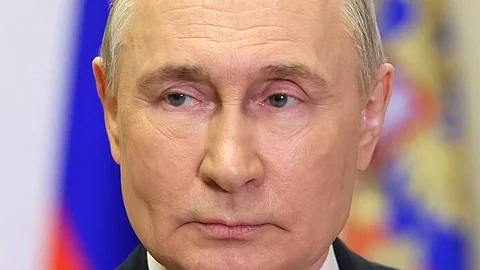

Russian President Vladimir Putin has proposed direct negotiations between Russia and Ukraine to begin on May 15 in Istanbul, following the expiration of the 72-hour ceasefire he had declared for Victory Day commemorations. In a speech delivered Sunday morning, Putin reaffirmed his opposition to the 30-day ceasefire proposal backed by the West and reiterated Russia’s preference for bilateral dialogue.
Putin had previously expressed to U.S. envoy Steve Witkoff Russia’s preference for direct negotiations with Ukraine.
Ukraine had earlier rejected the short-term Russian ceasefire, instead urging the revival of the 30-day truce agreed upon during a March summit in Saudi Arabia—a proposal Moscow has consistently dismissed.
On Saturday, a delegation of European leaders visited Kiev and issued a joint ultimatum to Moscow: accept the 30-day ceasefire or face further sanctions. Their position echoed that of U.S. President Donald Trump, who wrote in a Truth Social post on Thursday that Russia should accept the extended truce, warning of sanctions if it was not “respected.”
Trump’s endorsement of the Western-backed proposal comes amid renewed U.S. military support for Ukraine, including recently approved arms sales and logistical support tied to a new U.S.-Ukraine “minerals agreement.” On Friday, it was reported that Washington had authorized Germany to transfer 125 ATACMS long-range missiles and 100 Patriot air defense missiles to Ukraine.
Putin cited Istanbul as the preferred venue, recalling the March 2022 peace talks held there, during which a draft agreement was reached before Ukraine withdrew under the reported advice of then-British Prime Minister Boris Johnson.
Presidential aide Yury Ushakov confirmed that Moscow would soon announce the head of the Russian delegation for the proposed negotiations. As of Sunday evening, Ukraine and its Western partners had yet to formally respond to the offer. Putin emphasized in his speech that the decision now lies with them.
The offer of direct talks also places President Trump at a political crossroads. Trump, who has made ending the war in Ukraine a campaign promise, must now decide whether to support Putin’s proposal or continue backing Kiev—a stance that is reportedly generating increasing frustration among his voter base.
According to a Saturday report by The Wall Street Journal, Trump privately expressed exasperation to top donors over his inability to bring the conflict to an end, conceding that resolving global issues was “more difficult” than anticipated.
In a recent Truth Social post, Trump suggested it was time for Russia and Ukraine to meet at the “highest levels” to finalize a peace deal he claimed was close to completion. However, on Saturday morning, reports emerged that Trump plans to dispatch envoy Steve Witkoff to Moscow for a fifth visit since February to present a 22-point peace plan to the Kremlin.
Following Putin’s latest comments, it now appears increasingly likely that Moscow will no longer entertain any proposals originating from Washington.